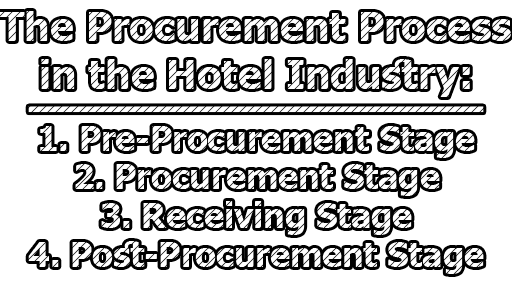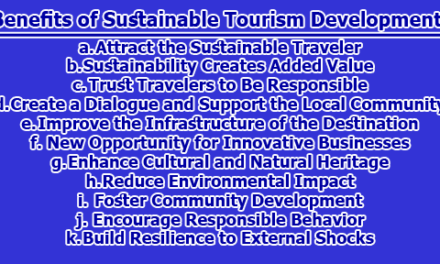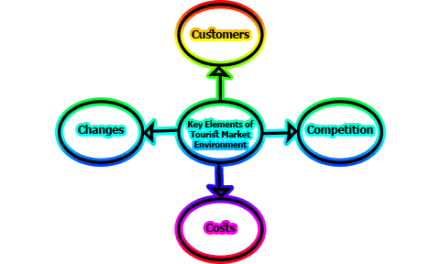The Procurement Process in the Hotel Industry:
The procurement process is a crucial aspect of the hotel industry, ensuring that hotels have the necessary resources to provide high-quality services to guests while also keeping costs under control. Effective procurement involves identifying needs, evaluating potential suppliers, negotiating pricing and terms, managing relationships with suppliers, and ensuring timely and reliable delivery of goods and services. In this article, we will discuss the procurement process in the hotel industry, including the pre-procurement stage, procurement stage, receiving stage, and post-procurement stage. We will also examine some of the challenges that hotels face in the procurement process and strategies for addressing them.
Definition of Procurement:
Procurement refers to the process of acquiring goods and services from external suppliers. In the hotel industry, procurement involves acquiring a wide range of goods and services, including food and beverages, linens and towels, cleaning supplies, and equipment.
Importance of Procurement in the Hotel Industry:
Procurement is crucial for ensuring that hotels have the necessary resources to provide high-quality services to guests. Effective procurement can help hotels to:
- Reduce costs: By negotiating pricing and terms with suppliers, hotels can obtain the best possible value for money.
- Ensure quality: By evaluating potential suppliers and monitoring supplier performance, hotels can ensure that they are receiving high-quality goods and services.
- Improve efficiency: By streamlining the procurement process, hotels can reduce the time and resources required to acquire goods and services.
- Manage risk: By diversifying suppliers and establishing contingency plans, hotels can reduce the risk of supply chain disruptions and other issues.
Purpose of the Procurement Process in the Hotel Industry:
The procurement process in the hotel industry serves several purposes, including:
- Identifying needs: The procurement process helps hotels to identify their needs and determine the goods and services that they require.
- Evaluating suppliers: The procurement process helps hotels to evaluate potential suppliers based on factors such as quality, reliability, pricing, and responsiveness.
- Negotiating pricing and terms: The procurement process helps hotels to negotiate pricing and other terms with suppliers to ensure the best possible value for money.
- Managing supplier relationships: The procurement process helps hotels to establish and maintain positive relationships with suppliers.
- Ensuring timely and reliable delivery: The procurement process helps hotels to ensure that goods and services are delivered on time and in the required quantities and quality.
Pre-Procurement Stage:
The pre-procurement stage is the first phase of the procurement process, involving the identification of needs and the establishment of a procurement team. The pre-procurement stage includes several key steps:
A. Identifying the Need for Procurement: The first step in the pre-procurement stage is to identify the goods and services that the hotel needs to acquire. This can involve reviewing historical data, conducting market research, and analyzing industry trends. Some of the goods and services that hotels commonly procure include:
- Food and beverages
- Linens and towels
- Cleaning supplies
- Equipment and machinery
- Furniture and fixtures
- Marketing and advertising services
- Consulting and professional services
B. Budget Allocation: Once the hotel has identified its procurement needs, it must allocate a budget for procurement. The procurement budget should take into account factors such as demand, seasonality, and expected occupancy rates. The procurement team should work closely with the finance team to ensure that the procurement budget is aligned with the overall financial goals of the hotel.
C. Identifying Suppliers: The next step in the pre-procurement stage is to identify potential suppliers that can provide the necessary goods and services. This can involve conducting research online, attending trade shows, and networking with industry contacts. Some factors to consider when evaluating potential suppliers include:
- Quality: The quality of goods and services provided by the supplier is an important factor to consider. The hotel should ensure that the supplier has a good reputation for delivering high-quality products or services.
- Reliability: The reliability of the supplier is also a critical factor. The hotel should ensure that the supplier has a good track record of delivering goods and services on time and in the required quantities.
- Pricing: The price of goods and services provided by the supplier is an essential factor to consider. The hotel should compare the prices of different suppliers and negotiate to obtain the best possible value for money.
- Responsiveness: The supplier’s responsiveness to inquiries and requests is also important. The hotel should ensure that the supplier is easy to communicate with and responds promptly to queries and requests.
D. Establishing a Procurement Team: Once the procurement needs have been identified, and potential suppliers have been identified, the hotel must establish a procurement team. The procurement team is responsible for managing the procurement process, including identifying and evaluating suppliers, negotiating pricing and terms, and managing supplier relationships.
The procurement team should be composed of individuals with relevant skills and experience in procurement, contract negotiation, and supplier management. The team should include representatives from different departments, including operations, finance, and marketing, to ensure that procurement decisions are aligned with the hotel’s overall goals and objectives.
Procurement Stage:
The procurement stage is the second phase of the procurement process, involving the selection and negotiation of suppliers. The procurement stage includes several key steps:
A. Issuing a Request for Proposal (RFP): The first step in the procurement stage is to issue an RFP to potential suppliers. The RFP should provide detailed information about the hotel’s procurement needs, including the goods or services required, quantities, quality requirements, and delivery timelines.
The RFP should also include instructions for suppliers on how to submit their proposals, including the deadline for submission and any specific requirements for proposal format and content.
B. Supplier Evaluation and Selection: Once proposals have been received from potential suppliers, the procurement team must evaluate and select the most suitable suppliers. The evaluation process should consider factors such as quality, reliability, pricing, and responsiveness, as well as any other specific requirements outlined in the RFP.
The procurement team may also conduct site visits or request samples from suppliers to verify their capabilities and quality standards.
C. Negotiating Pricing and Terms: Once potential suppliers have been evaluated and selected, the procurement team must negotiate pricing and other terms with the suppliers. The procurement team should aim to obtain the best possible value for money while ensuring that the suppliers’ pricing and terms are fair and reasonable.
The negotiation process may involve several rounds of discussions and may cover a range of topics, including pricing, delivery timelines, payment terms, and quality standards.
D. Contract Execution: Once pricing and terms have been agreed upon, the procurement team must execute contracts with the selected suppliers. The contracts should clearly outline the terms and conditions of the procurement agreement, including pricing, delivery timelines, payment terms, and quality standards.
The contracts should also include provisions for managing supplier performance, such as service level agreements and key performance indicators.
Receiving Stage:
The receiving stage is the third phase of the procurement process, involving the receipt and inspection of goods and services from suppliers. The receiving stage includes several key steps:
A. Goods Receipt and Inspection: Once goods and services have been delivered by suppliers, the procurement team must receive and inspect them to ensure that they meet the agreed-upon quality standards. The procurement team should check for any damages, defects, or discrepancies between the goods received and the purchase order.
B. Acceptance and Payment: Once goods and services have been received and inspected, the procurement team must accept them and initiate payment to the supplier. The procurement team should ensure that payment is made in accordance with the agreed-upon payment terms.
C. Record Keeping: The procurement team must maintain accurate records of all procurement transactions, including purchase orders, contracts, invoices, and receipts. The records should be organized and easily accessible to enable quick retrieval and reference.
The record-keeping process should also include regular reconciliations between purchase orders, invoices, and receipts to ensure that all transactions have been accurately recorded.
Post-Procurement Stage:
After the procurement process is completed, the post-procurement stage begins. This stage involves payment, performance evaluation, and contract management.
A. Payment: Payment is a crucial aspect of the procurement process. It is essential to ensure that the payment is made promptly and accurately, as agreed upon in the contract. Delayed payments can harm the relationship between the hotel and its suppliers. Hence, it is crucial to establish clear payment terms and schedules in the procurement contract.
To ensure timely payment, hotels can consider implementing electronic payment systems, such as wire transfers or online payment gateways. These systems can streamline the payment process, reduce processing time, and eliminate errors.
B. Performance Evaluation: Performance evaluation is a crucial part of the procurement process, as it helps hotels assess supplier performance and identify areas for improvement. The evaluation process should be objective, transparent, and based on predetermined criteria.
Hotels can use a range of performance metrics to evaluate supplier performance, such as quality, reliability, cost-effectiveness, and responsiveness. These metrics can help hotels identify areas for improvement and work collaboratively with suppliers to enhance their performance.
Moreover, performance evaluations can also help hotels identify high-performing suppliers that can be further developed and nurtured as long-term partners. It is essential to provide feedback to suppliers to help them improve their performance continually.
C. Contract Management: Contract management is the final stage of the procurement process. It involves monitoring and enforcing the procurement contract to ensure that both parties comply with their obligations. Contract management is critical to avoid disputes and minimize risks.
Effective contract management requires close communication and collaboration between the hotel and its suppliers. The hotel must ensure that the supplier delivers the goods or services as agreed upon in the contract. Likewise, the supplier must comply with the contract terms, such as delivery schedules, quality standards, and pricing.
To ensure effective contract management, hotels can consider using contract management software or outsourcing contract management to third-party providers. These solutions can help automate contract tracking, monitoring, and reporting, reducing the risk of errors and omissions.
Supplier Relationship Management:
Supplier relationship management is an essential aspect of the procurement process. Effective supplier relationship management can help to ensure that suppliers continue to provide high-quality goods and services and can also help to identify opportunities for cost savings and process improvements. The supplier relationship management process includes several key steps:
A. Regular Communication: The hotel should maintain regular communication with its suppliers to ensure that they are meeting their obligations under the procurement agreement. The communication should include feedback on supplier performance, updates on the hotel’s procurement needs, and any other relevant information.
B. Performance Monitoring: The procurement team should monitor supplier performance regularly to ensure that they are meeting the agreed-upon quality standards, delivery timelines, and pricing. The team should also track key performance indicators to identify opportunities for process improvements and cost savings.
C. Dispute Resolution: Inevitably, there may be disagreements or disputes between the hotel and its suppliers. The procurement team should have a clear process in place for resolving disputes, including escalation procedures and methods for resolving issues through negotiation or alternative dispute resolution methods.
D. Contract Renewal and Termination: The procurement team should review procurement contracts regularly to ensure that they continue to meet the hotel’s needs and are still competitive. The team should also have a process in place for renewing contracts and terminating contracts that are no longer beneficial to the hotel.
Challenges in the Procurement Process in the Hotel Industry:
The procurement process in the hotel industry is not without its challenges. The following are some of the significant challenges that hotels face in the procurement process:
A. Supply Chain Disruptions: One of the most significant challenges faced by hotels in the procurement process is supply chain disruptions. Supply chain disruptions can occur due to a range of factors, such as natural disasters, political instability, or economic crises. These disruptions can lead to delays, shortages, and price fluctuations, impacting the hotel’s operations and profitability.
To mitigate the impact of supply chain disruptions, hotels can consider implementing contingency plans, such as alternative sourcing, safety stock, or strategic inventory. These plans can help hotels respond quickly and effectively to supply chain disruptions, ensuring continuity of operations and customer satisfaction.
B. Lack of Transparency: Another significant challenge faced by hotels in the procurement process is the lack of transparency. The procurement process involves multiple stakeholders, such as suppliers, procurement teams, and hotel managers, making it complex and challenging to manage. The lack of transparency can lead to misunderstandings, disputes, and inefficiencies, hampering the procurement process’s success.
To address the lack of transparency, hotels can consider implementing procurement policies and procedures that promote transparency and accountability. Moreover, hotels can use procurement software or tools that provide real-time visibility into the procurement process, allowing stakeholders to track procurement activities and performance.
C. Inadequate Communication: Inadequate communication is another challenge that hotels face in the procurement process. Effective communication is essential to ensure that all stakeholders understand the procurement process’s goals, expectations, and requirements. Inadequate communication can lead to misunderstandings, delays, and conflicts, undermining the procurement process’s success.
To address inadequate communication, hotels can consider establishing clear communication channels and protocols that promote open and timely communication between stakeholders. Moreover, hotels can provide training and development programs that enhance communication skills and promote cross-functional collaboration.
At the end of the day, we can say that the procurement process in the hotel industry is a complex and multi-stage process that requires careful planning, execution, and management. Effective procurement can help to ensure that hotels obtain high-quality goods and services at competitive prices, while also building strong relationships with suppliers and identifying opportunities for cost savings and process improvements. To achieve effective procurement, hotels must identify their procurement needs, identify potential suppliers, establish a procurement team, and manage supplier relationships effectively. By following these steps, hotels can optimize their procurement processes and achieve their overall goals and objectives.
References:
- Agrawal, N., & Smith, S. (2016). Strategic sourcing: a framework and a review. International Journal of Procurement Management, 9(1), 1-28.
- Chien, C. F., & Tsai, H. L. (2012). The development of a supplier selection model for the hotel industry. International Journal of Hospitality Management, 31(3), 709-717.
- Dornberger, U., & Zirn, L. (2016). Procurement organization: A literature review. Journal of Purchasing and Supply Management, 22(4), 252-265.
- Klassen, R. D., & Vereecke, A. (2018). Global supply chain management: A resource-based perspective. Routledge.
- Liu, C. H., Chen, L. H., & Yang, C. H. (2016). A study of purchasing management for the hotel industry. Journal of Quality, 23(2), 275-292.
- Monczka, R. M., Handfield, R. B., Giunipero, L. C., & Patterson, J. L. (2015). Purchasing and supply chain management. Cengage Learning.
- Weele, A. J. (2018). Purchasing and supply chain management: Analysis, strategy, planning, and practice. Cengage Learning EMEA.
- Spekman, R. E., Kamauff Jr, J. W., & Myhr, N. (2012). Supplier relationship management: How to maximize vendor value and opportunity. John Wiley & Sons.
- Zhang, J., & Li, X. (2017). The effects of green procurement practices on supplier selection and performance: An empirical study from the hotel industry. International Journal of Hospitality Management, 62, 44-52.
- Tariq, M. A., & Ilyas, M. (2018). An investigation into procurement practices and their impact on the performance of hotels in Pakistan. Tourism Management Perspectives, 28, 40-47.
- Gligor, D. M., & Holcomb, M. C. (2012). Understanding the role of logistics capabilities in achieving supply chain agility: a systematic literature review. Supply Chain Management: An International Journal, 17(4), 438-453.
- Chen, Y., Wang, H., & Wei, Y. (2017). Purchasing management, supplier relationship management and firm performance: Evidence from China’s hotel industry. Journal of Business Research, 70, 105-112.
- Handfield, R. B., & Cousins, P. D. (2015). Supply chain redesign: Transforming supply chains into integrated value systems. Pearson Education.
- Quayle, M. (2019). Purchasing and Supply Chain Management: A Sustainability Perspective. Routledge.
- Walker, H., Di Sisto, L., & McBain, R. (2008). Drivers and barriers to environmental supply chain management practices: lessons from the public and private sectors. Journal of Purchasing and supply management, 14(1), 69-85.

Library Lecturer at Nurul Amin Degree College










